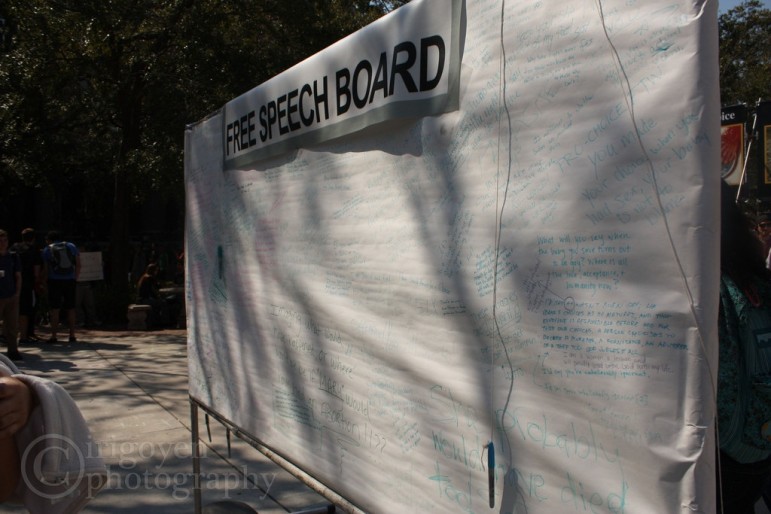
April 4, 2016; Washington Post
According to a new national study, college students embrace the opportunity to hear and deliver a variety of ideas and viewpoints but would prefer that their schools restrict offensive speech. Still, seventy-eight percent value the importance of having an “open learning environment,” even if offensive or biased speech is allowed, over the alternative of creating a “positive learning environment” where certain speech types are prohibited.
The Knight Foundation and Newseum Institute, partnering with Gallup, have issued the results of a survey of students and adults regarding free speech on campuses. It has determined that, for the most part, college students seek a balance between free speech and hate speech. The survey results follow a spate of protests at colleges, including Yale and the University of Missouri, from students who objected to slurs and ugly words. They have been searching for a way to separate the name calling from free speech, something that this country has wrestled with since the ink on the Constitution was barely dry.
Sign up for our free newsletters
Subscribe to NPQ's newsletters to have our top stories delivered directly to your inbox.
By signing up, you agree to our privacy policy and terms of use, and to receive messages from NPQ and our partners.
The telephone survey of 3,072 students, age 18 to 24, at four-year colleges was conducted from February 29th to March 15th. The overall sampling error was plus or minus 3 percentage points; for white students it was 4 points, and for black students 9 points. The questions sought to gauge student attitudes about the media and First Amendment freedoms.
The survey also found that students draw a distinction between speech that is politically offensive and expressions that are slurs or promote racial stereotypes:
- Asked whether colleges should be allowed to restrict political views that are offensive or upsetting to certain groups, 72 percent said no. Seventy-six percent of white students and 59 percent of black students held this view.
- Overall, 69 percent said colleges should be able to limit the use of slurs and other language that is intentionally offensive to certain groups. Seventy-nine percent of black students and 67 percent of white students endorsed this view.
- Overall, 63 percent said colleges should be able to restrict wearing of costumes that stereotype certain racial or ethnic groups. A larger share of black students—77 percent—agreed with this statement, compared to 62 percent of white students.
Free speech does cover the guy on the corner yelling, “The college president is a jerk,” but name-calling does not garner admiration for one’s ideological position, nor does it educate people or influence them to change their opinions. In the educational environment, the frustration is understandable; these college students aspire to something many of us desire: a level of respect in discussing ideas and political positions.—Marian Conway













